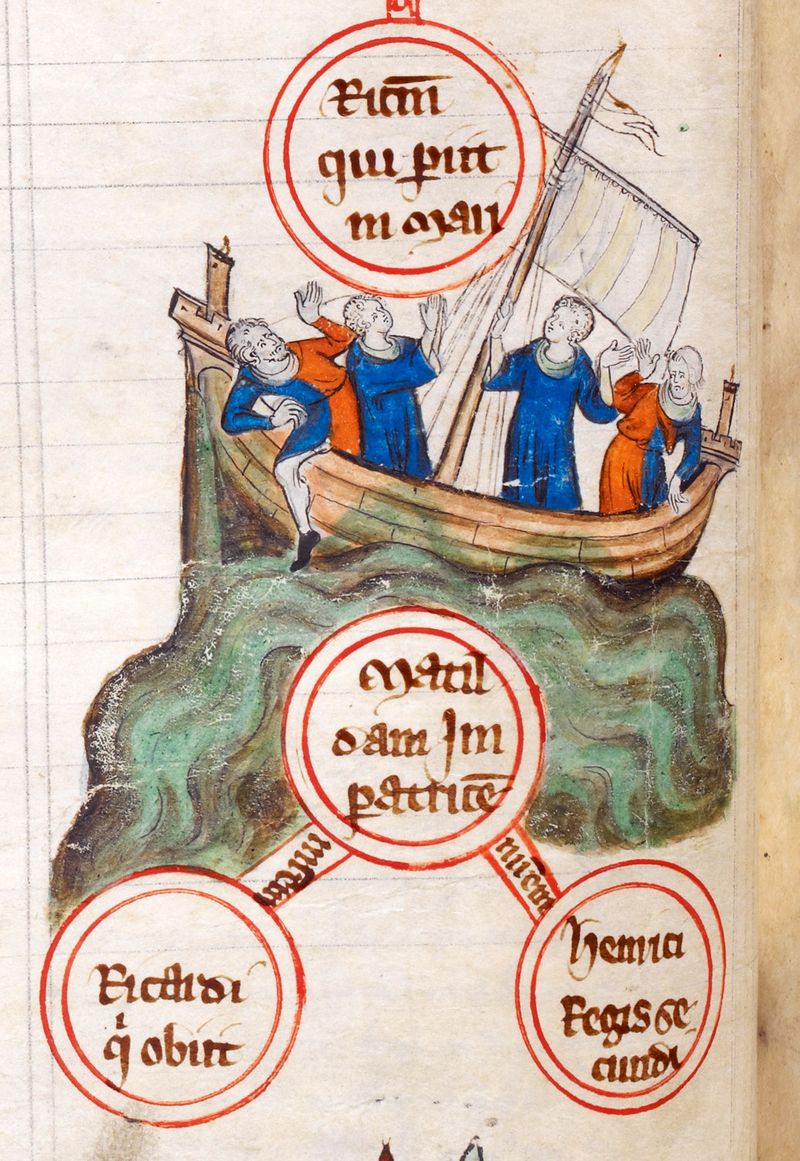|
etalian posted:
|
|
|
|

|
| # ? Jun 2, 2024 12:27 |
|
Dalael posted:Best place to ask would be the real ancient history thread: https://forums.somethingawful.com/showthread.php?threadid=3486446 I did ages ago but got no reply. Cheers for the recommendation but I suppose I'll hit up the library or email an academic or something.
|
|
|
|
Augustus' handling of the senate in the principate is pretty easy to learn about but the senate post 476ce is gonna be troublesome
|
|
|
|
dpf posted:I did ages ago but got no reply. Cheers for the recommendation but I suppose I'll hit up the library or email an academic or something. So I had a quick look and the only thing I found is "The Senate of Imperial Rome" from Richard Talbert. From the description: quote:Richard J. A. Talbert examines the composition, procedure, and functions of the Roman senate during the Principate (30 B.C.-A.D. 238). Although it is of central importance to the period, this great council has not previously received such scholarly treatment. Offering a fresh approach to major ancient authors (Pliny and Tacitus in particular), the book also draws on inscriptions and legal writers never before fully exploited for the study of the senate. Not exactly what you're looking for but, better than nothing?
|
|
|
|
From what I heard, when Justinian invaded Italy, a good chunk of Italian nobles/senators packed up and moved to Anatolia to avoid the war and never came home. Afterwards the remainers didn't bother to convene anymore because there weren't enough of them to bother.
|
|
|
Captain_Maclaine posted:Again, I return to the graffiti of Pompeii which was mostly dicks or comments about dicks. In 1920 archaeologists discovered a roman garrison town in Syria called Dura Europos. It was clear that the town had been destroyed in a battle but the identity of the attackers was unclear until they found some graffiti on the wall. The graffiti read "the persians attacked us" and beneath the text it was a drawing of a soldier on a horse.  Platystemon posted:Carthage: uses boats The vikings did the same thing. Before every sea battle they tied all their longships together to make a floating battlefield. WoodrowSkillson posted:Overall the reason Rome is so fun to learn about is there is just so much humanizing information about them because we just luckily have it. Certainly it was no different in other ancient cultures as well, but we just do not have the same depth of information for many of them. The vindolanda tablets alone are goddamn amazing in the window they give to what amounts to everyday life. Drawings made by Omfin, a kid who lived in Novgorod in the 13th century: 
|
|
|
|
|
omfin owns
|
|
|
|
I think you'll find Onfim was actually a wild beast
|
|
|
|
More evidence that there was civilization on the North American continent much earlier than previously thought: https://www.nationalgeographic.com/culture/2019/08/coopers-landing-idaho-site-americas-oldest/ or in the words of Graham Hancock, "duh".
|
|
|
|
|
The wrecks of the Terror and Erebus are surprising well preserved. https://www.youtube.com/watch?v=OxyTZ3F7mkA
|
|
|
|
etalian posted:The wrecks of the Terror and Erebus are surprising well preserved. Fergus Fleming's Barrow's Boys is a great read
|
|
|
|
emfive posted:Fergus Fleming's Barrow's Boys is a great read lol quote:
|
|
|
|
etalian posted:lol the deal was that after the Napoleonic wars there were many, many thousands of officers out of jobs. Barrow was the lowest-ranking member of the Admiralty but he effectively had full executive discretion on how to carry out the vague intentions of a bunch of drunk idiots higher up in the bureaucracy. It was all completely insane, the book is amazing, like sci-fi
|
|
|
|
emfive posted:the deal was that after the Napoleonic wars there were many, many thousands of officers out of jobs. Barrow was the lowest-ranking member of the Admiralty but he effectively had full executive discretion on how to carry out the vague intentions of a bunch of drunk idiots higher up in the bureaucracy. The It's Always Sunny in Philadelphia approach to exploring the world?
|
|
|
|
any ancient history books that have an audio book y'all would recommend? Or podcasts I suppose, I listened to the Rome podcast by that one guy and enjoyed it.
|
|
|
|
Id be interested in audiobook recs too but podcast wise it sounds like The Ancient World by Scott Chesworth is exactly what you're looking for. Its a lil rough in the beginning but the sound editing and diction improves considerably as it goes on. After Scott finished up his main tour of the ancient world he next did something interesting and iirc unique among history podcasts: tell centuries of history framed by following the descendents of a single family from Cleopatra to Zenobia.
|
|
|
|
I really enjoy reading ancient histories that were written in ancient times. Diodorus Sicilus, Plutarch, Pliny the Elder. Especially when they are discussing places and cultures that were unfamiliar to them, they often included many strange and fascinating legends and stories, often compiled from other texts that have since been lost. The most famous in this genre is Herodotus, who is usually considered to be the inventor of history in the West, in the sense that he was the first one to come up with a systematic method for researching and compiling stories about the past into a single coherent narrative. And unlike some of the other people I just mentioned, he traveled to many of the places he wrote about, so his stories about Egypt were ones he heard there firsthand from local priests, etc. Much of it is about actual history, and wars and rulers and such, but some of the stories are pretty ridiculous: Herodotus posted:Other Indians dwell near the town of Caspatyrus and the Pactyic country, northward of the rest of India; these live like the Bactrians; they are of all Indians the most warlike, and it is they who are charged with the getting of the gold; for in these parts all is desert by reason of the sand. There are found in this sandy desert ants not so big as dogs but bigger than foxes; the Persian king has some of these, which have been caught there. These ants make their dwellings underground, digging out the sand in the same manner as do the ants in Greece, to which they are very like in shape, and the sand which they carry forth from the holes is full of gold. It is for this sand that the Indians set forth into the desert. They harness three camels apiece, a male led camel on either side to help in draught, and a female in the middle: the man himself rides on the female, careful that when harnessed she has been taken away from as young an offspring as may be. Their camels are as swift as horses, and much better able to bear burdens besides. Despite such tales, it is interesting to read the histories because it gives you an idea of how people in ancient times believe their world worked, and shows you how much knowledge they had of it. That is very important if you want to understand why they did the things they did. I used to listen to Librivox recordings of the histories while drifting off to sleep, and since those are user-submitted recordings some sections are of higher quality than others: https://librivox.org/herodotus-histories-vol-1/ I am sure there is a proper audiobook of it too. Someone mentioned 1077 BC on here before, and that's a good read, and seems to be available on audible: https://www.audible.co.uk/pd/1177-B...c3_lProduct_6_4 ~~~ As for podcasts, I'm not a huge fan of Dan Carlin, but he did an amazing 5 part series (8 hours in total) about the history of the Mongolian Empire that was really cool. When I listened to it, it was available for free, though it looks like he is selling it now for  : :https://www.dancarlin.com/product/hardcore-history-wrath-of-the-khans-series/ And though I mentioned it several times here already, it remains one of my favorites, the short-lived History of Exploration podcast: https://historyofexploration.net/ The Maritime History Podcast is also good if you want to remember sailor, but the narrator's voice isn't the most engaging: http://maritimehistorypodcast.com/episodes-maritime-history-podcast/
|
|
|
|
Funny you use that story in particular because the gold digging ants are real, except due to probably a mistranslation by Herodotus they're not ants they're marmots: quote:They say the outsize furry 'ants', first described by Herodotus in the fifth century BC, are in fact big marmots. These creatures -Herodotus calls them 'bigger than a fox, though not so big as a dog'- are still throwing up gold bearing soil from deep underground as they dig their burrows. Most important, the explorers say they have found indigenous people on the same high plateau who say that for generations they have collected gold dust from the marmots' work.
|
|
|
|

|
|
|
|
I like the History of Egypt and Fall of Rome podcasts because they are made by academics and not hobby enthusiasts, who, whatever subject they cover, sooner or later fall into the swamp that is military history.
|
|
|
|
Wouldn't be the first time people scoffed at something Herodotus said on for it to be completely real. I recall his accounts of nile river yachts being retarded as an exaggeration and welp they found one buried in the mud, just as described
|
|
|
|
I really want them to find evidence of the Mediterranean tsunami that Ammianus Marcelinus talks about. Supposedly large ships where tossed into the beginnings of the Sahara sometime in the... late 3rd to 4th century?
|
|
|
|
Ali Alkali posted:I like the History of Egypt and Fall of Rome podcasts because they are made by academics and not hobby enthusiasts, who, whatever subject they cover, sooner or later fall into the swamp that is military history. On this note I randomly became curious about the megalithic era of Japanese History (or Kofun period), and listened to a couple of early episodes from the podcast called "Samurai Archives Japanese History Podcast" and found that it was incredibly professionally done, with actual historians and archaeologists commenting on the most nuanced details about excavations dating to several thousand years before the written record. Incredibly professional and also very scientific and dry. I personally consider history to be more of an art than a science because no matter what they dig up, it ultimately ends up with someone weaving together a historical narrative out of it and that it how it is remembered by everyone else. So while I personally place a lot of value on archaeology and scientific data about the past, I place even more value on people who are able to compress all of this into a cohesive story, however incomplete it may be. On that note, I want to mention an archaeology blog that I read every single week: https://exploratornews.wordpress.com/ Every week, this blog compiles every singly interesting article about archaeology that was published, from the origins of ancient homo to the colonial era, categorized into several sections based upon region and culture. Every week, archaeologists uncover amazing, mind-boggling things. Every week, I read this, and I learn something which I didn't know before. I click on the titles of articles which sound interesting, and I don't always know what the gently caress they are talking about of course, but the articles provide enough keywords for me to look into it further. It has proved to be a continuous font of knowledge.
|
|
|
|
So do the marmots chase down the camels?
|
|
|
|
GokuGoesSSJ3 posted:Funny you use that story in particular because the gold digging ants are real, except due to probably a mistranslation by Herodotus they're not ants they're marmots: Also while I have not myself found gold in their spoils, I did find several Cretaceous conodont molar cusps in the spoils of a prairie dog burrow, and at another burrow found some limestone marine snail shells which must have been brought up from pretty deep because the surface was all bentonite shale. As I recall the early paleontologist Othniel Marsh loved searching anthills for the same sort of microfossils. So there's a lot of cool stuff animals can excavate for lazy humans! twoday posted:I personally consider history to be more of an art than a science because no matter what they dig up, it ultimately ends up with someone weaving together a historical narrative out of it and that it how it is remembered by everyone else. So while I personally place a lot of value on archaeology and scientific data about the past, I place even more value on people who are able to compress all of this into a cohesive story, however incomplete it may be. I think if you're going to take this attitude to history, its going to inevitably lead you into making some mistakes. History HAS to be treated as a science, because unlike the quality of a painting or song, it is not subjective. We can't treat it like it is, and if we do, we liable to end up believing the things we want to believe. History must be falsifiable and empirical, and if it's not those things it's just fiction. Obviously when Plutarch says Tiberius was a baby fucker we can't go back in time and literally catch the Emperor in the act, we can't test history that way. What we can do is test if Plutarch actually existed in the time he says he does, we can check his reliability in other respects, and we can look to see if his statements are consistent with everything else we know. Ultimately for a lot of historical stories we just have to shrug and accept we don't know what really happened or who had sex with what. Acknowledging the extent of uncertainty might be the most important job of a good scientist, even if it's not very flashy, and even if it means we can't trust the saucy sex gossip of antiquity.
|
|
|
|
Squalid posted:Also while I have not myself found gold in their spoils, I did find several Cretaceous conodont molar cusps in the spoils of a prairie dog burrow, and at another burrow found some limestone marine snail shells which must have been brought up from pretty deep because the surface was all bentonite shale. As I recall the early paleontologist Othniel Marsh loved searching anthills for the same sort of microfossils. So there's a lot of cool stuff animals can excavate for lazy humans! History cannot be treated as a science because it is inherently subjective! It is based upon countless layers of presumption which are not founded in science but rather upon hearsay, and those secondary sources make up a great deal of our understanding of history, especially when dealing with ancient times. Every history that has been written was colored by the understanding of the past which was popular in its time, and the multitude of inaccuracies has only accumulated. There is no objective way to interpret the past. We analyze artifacts and determine what they mean (while we ourselves are influenced by previous false interpretations), and make massive assumptions about entire societies based upon those conclusions. But we have no idea what they mean in actuality, it's all just an educated guess. Pretending that history or archaeology are in any way objective is a delusion. Though there are material remnants which are unquestionably a representation of the past, our entire understanding of the culture which surrounded those objects is based on little more than an accumulation of subjective interpretations. That is the basis of all historical interpretation, that is its bread and butter, sorry. Read this and get back to me: http://sultanaeducation.org/wp-content/uploads/2014/06/Motel-of-the-Mysteries-Macaulay.pdf
|
|
|
|
History can never be a science but mocking people for trying to be scientific about history is in most cases equally stupid. The truth ain't in the middle but the extremes are dumb as rocks.
|
|
|
|
Agreed. I don't mean to dismiss all of the science which has been used in the analysis of archeology, but merely point out some of the fundamental flaws underlying the ways in which those findings are often interpreted Edit: I also didn’t want to come off as mocking, that was not at all my intention 
twoday has issued a correction as of 06:40 on Sep 3, 2019 |
|
|
|
And that's also why there is a distinction between archeology and history Whereas modern archeology is often based opon the scientific method, history is a subjective interpretation based upon those findings as much as it is based upon inherently subjective written records There is no such thing as a scientifically verifiable interpretation of history
|
|
|
|

|
|
|
|
Reminds me of the caves of the Gran Canaria, the underground cave cities of Anatolia, and the caves of the Cobra Valley in Nepal, but the vegetation seems wrong for all of those places. Where is it?
|
|
|
|
twoday posted:Reminds me of the caves of the Gran Canaria, the underground cave cities of Anatolia, and the caves of the Cobra Valley in Nepal, but the vegetation seems wrong for all of those places. Where is it? Anatolia. It’s the Derinkuyu underground city.
|
|
|
|
way slimier than I expected for Anatolia, gross
|
|
|
|
twoday posted:History cannot be treated as a science because it is inherently subjective! It is based upon countless layers of presumption which are not founded in science but rather upon hearsay, and those secondary sources make up a great deal of our understanding of history, especially when dealing with ancient times. Every history that has been written was colored by the understanding of the past which was popular in its time, and the multitude of inaccuracies has only accumulated. There is no objective way to interpret the past. We analyze artifacts and determine what they mean (while we ourselves are influenced by previous false interpretations), and make massive assumptions about entire societies based upon those conclusions. But we have no idea what they mean in actuality, it's all just an educated guess. Pretending that history or archaeology are in any way objective is a delusion. Though there are material remnants which are unquestionably a representation of the past, our entire understanding of the culture which surrounded those objects is based on little more than an accumulation of subjective interpretations. That is the basis of all historical interpretation, that is its bread and butter, sorry. It’s pure nonsense. Good history is not subjective. If you look through old naval reports, and it says Ship X sank in 1944 off coast Y, you can actually go there and test if those reports are reliable. And very often they are.. There is nothing subjective about this at all. Either the ship sank there or it didn’t. The mistake people make is that they confuse there being room for interpretation for subjectivity. These are not the same thing! If I present at the doctor with certain symptoms, there maybe more than one disease that could explain my condition, and the doctor may use their professional opinion to select between any one of several possible treatments. My condition however is not subjective, there’s just uncertainty. People get confused on this distinction because academic historians are not usually the people who end up testing historical research. That’s typically done by other people in other fields who apply the data collected and organized by historians. However the fact they can use that data in what are clearly scientific investigations is proof that historical methods are scientific methods.
|
|
|
|
Squalid posted:Also while I have not myself found gold in their spoils, I did find several Cretaceous conodont molar cusps in the spoils of a prairie dog burrow, and at another burrow found some limestone marine snail shells which must have been brought up from pretty deep because the surface was all bentonite shale. As I recall the early paleontologist Othniel Marsh loved searching anthills for the same sort of microfossils. So there's a lot of cool stuff animals can excavate for lazy humans! I'm gonna have to both agree and disagree with you on this subject. What you say isn't wrong, but I think it's also important to understand that when it comes to history,
|
|
|
|
My thesis was a bit of a comparative analysis on race relations in German vs Anglo settlements in Texas. Science: statistics based on census data, estimated net worth from career type and land holdings, comparisons on numbers of lynchings reported, etc. Not science: everything else, including the main idea of whether things were "better" for minorities in certain areas and how that compares to the modern idea of traditional German-American tolerance
|
|
|
|
Most historians aren't doing research as to whether or not a ship sunk.
|
|
|
|
Dalael posted:I'm gonna have to both agree and disagree with you on this subject. What you say isn't wrong, but I think it's also important to understand that when it comes to history, your error here is assuming that science isn't subject to interpretation. Flavius Aetass posted:My thesis was a bit of a comparative analysis on race relations in German vs Anglo settlements in Texas. you might not have had statistics to prove if one area was better or worse for minorities. However you probably had a variety of textual sources which you carefully referenced. If I disagreed with you I could go to those sources myself, because as a historian you reasoned from specific evidence. https://www.youtube.com/watch?v=OsOG_whfVck This is one of my favorite youtube channels right now. This is short video but he lays out all the pieces of evidence that support the Great pyramid being built by Khufu. Each line of evidence he presents, textual and archaeological, is testable against the others, and all of them point to a single conclusion. Impressive considering the pyramid was built 4500 years ago!
|
|
|
|
Flavius Aetass posted:Most historians aren't doing research as to whether or not a ship sunk. what about the White Ship?
|
|
|
|

|
| # ? Jun 2, 2024 12:27 |
|
Bernstrike posted:what about the White Ship? scientifically, according to this contemporary image  the ship was much too small for four people
|
|
|


















 Yes, it's like a lava lamp.
Yes, it's like a lava lamp.















